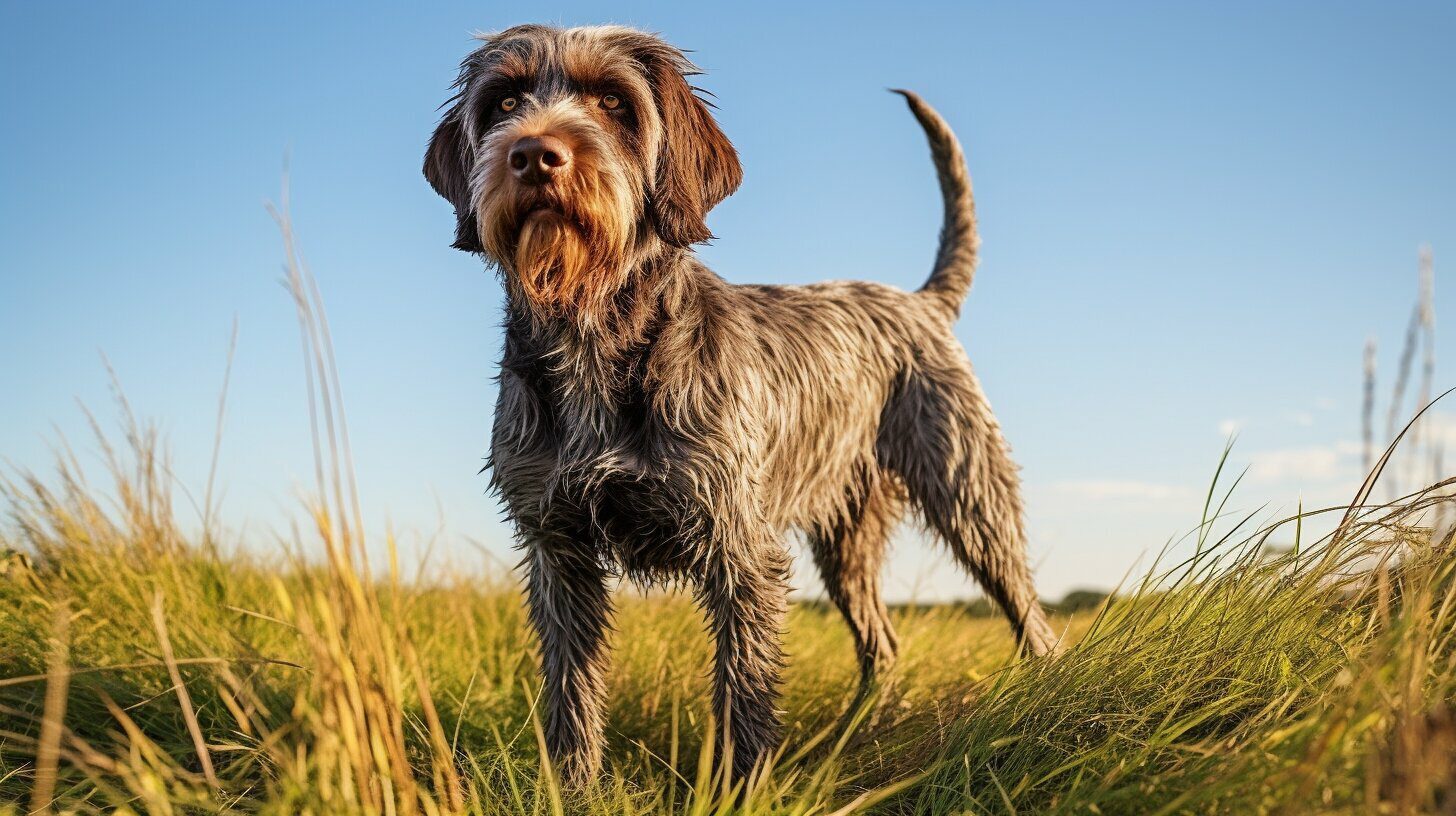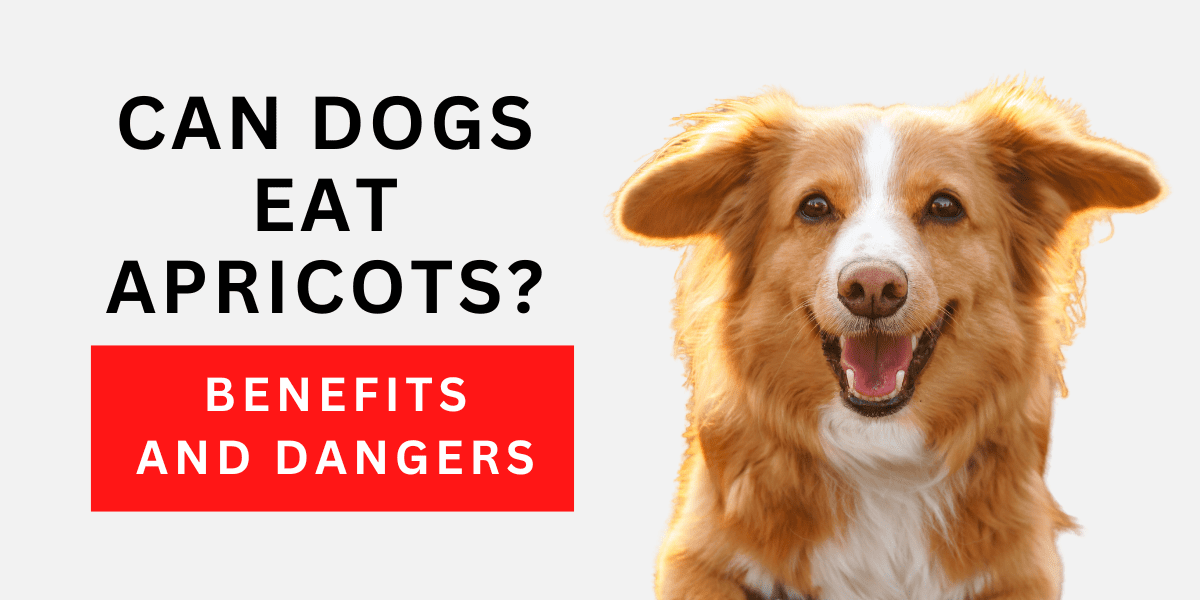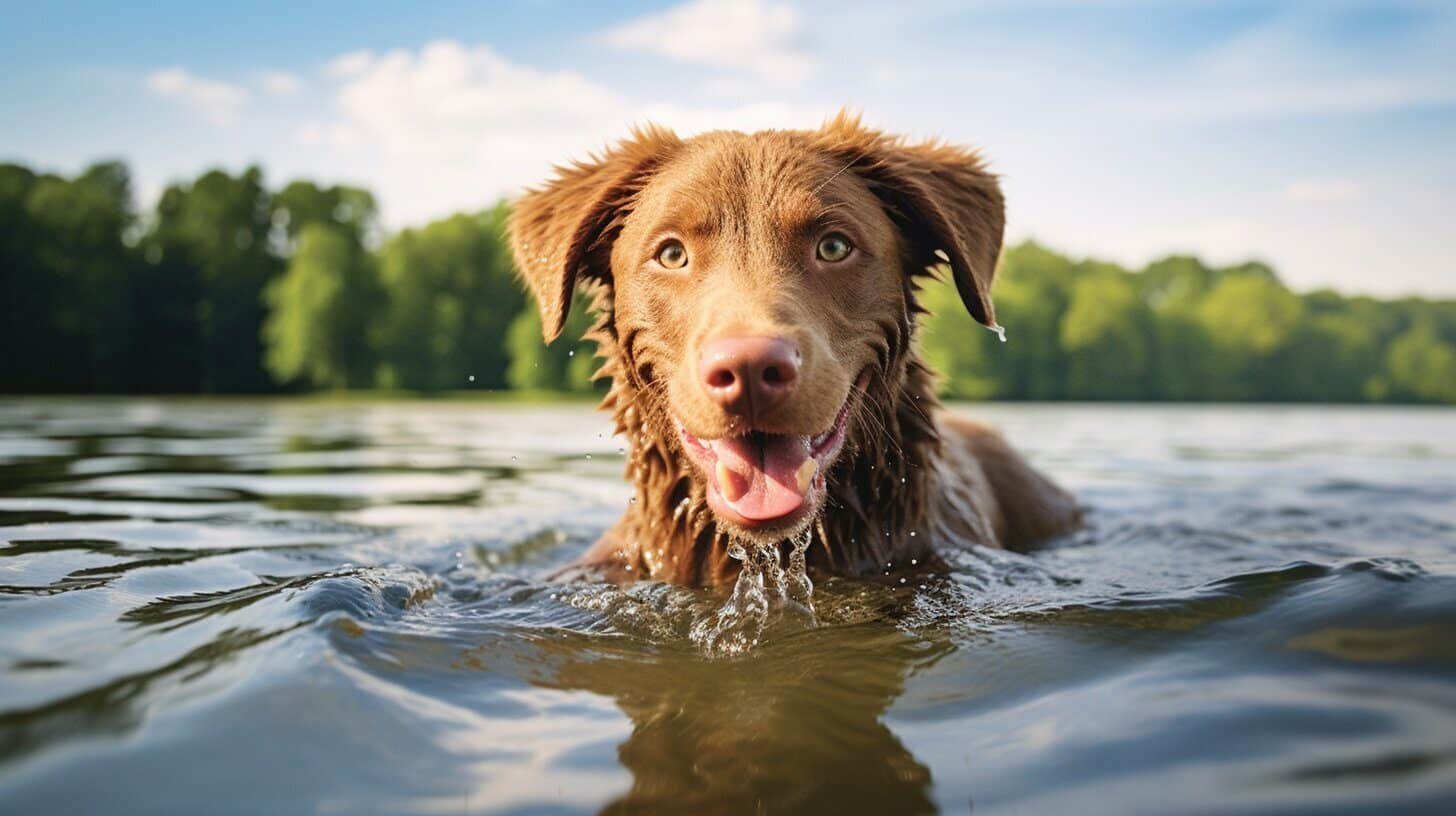Dogs are our loyal companions; we love to share everything with them, including our food. But is everything safe for them to eat? For example, can dogs eat salami, a popular cured meat many humans enjoy? The short answer is no; there are better ideas than feeding dogs salami or cured meat. In this blog, we will explore why you should avoid feeding salami to your furry friend and provide some alternatives for treats that are safe for dogs.
What is Salami?
What’s Salami Made of?
Salami is a cured sausage made from ground pork and various spices. It is traditionally made by grinding pork and other meats, such as beef, and mixing it with herbs, salt, and seasonings. The mixture is then stuffed into a casing, curing for a few weeks to several months. The curing process involves using salt, which helps preserve the meat and give it its distinctive flavor. Salami can be a small slice thin and eaten on its own or used as an ingredient in sandwiches and other dishes.
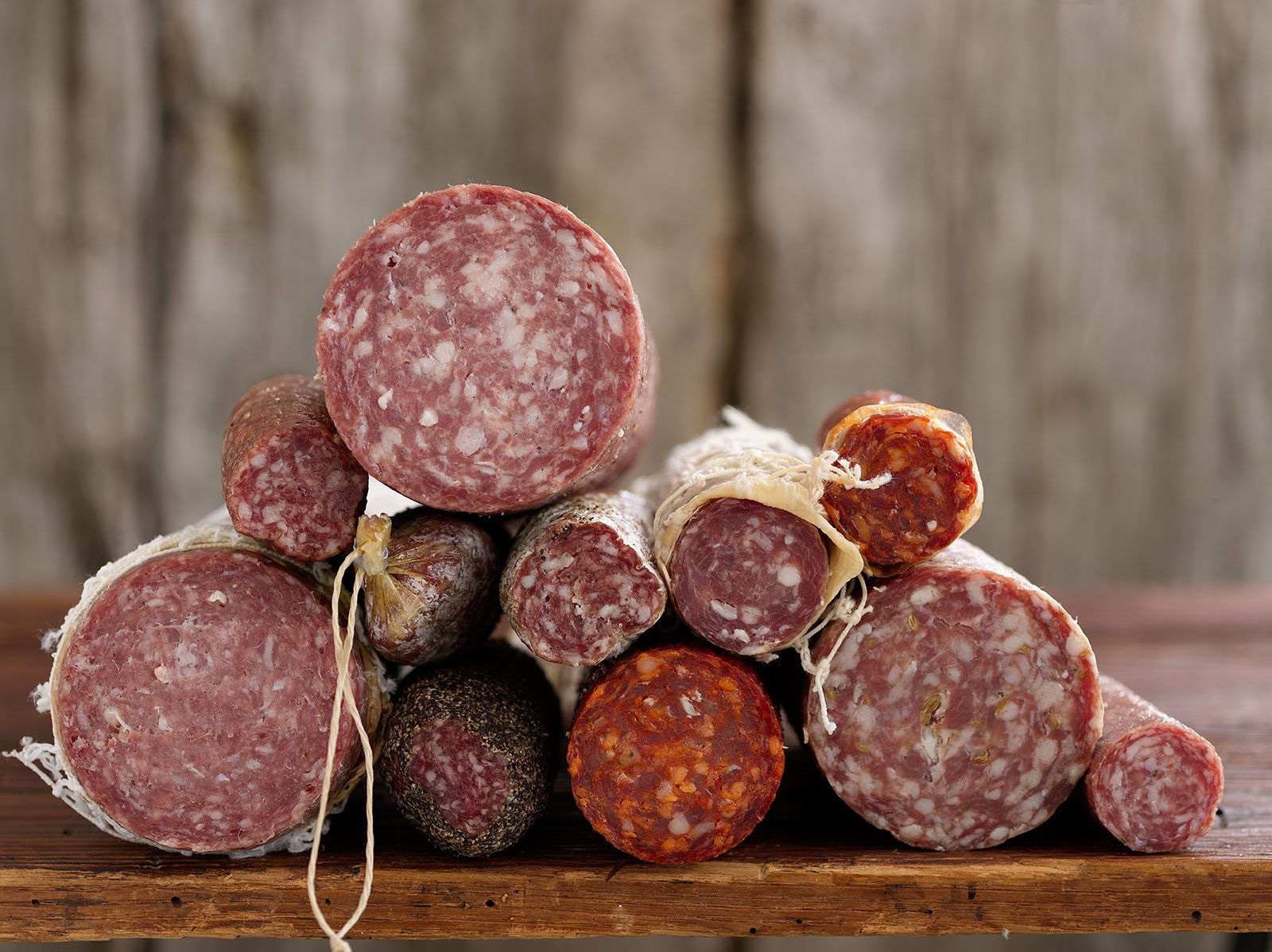
What About Salami’s High Fat Content?
Salami has too much fat content, which can harm dogs if consumed in large quantities. In addition, dogs have a much faster metabolism than humans. As a result, they can more easily develop pancreatitis, a severe condition when the pancreas becomes inflamed and unable to function correctly.
One of the leading causes of pancreatitis in dogs is a high-fat diet. Consuming large amounts of fat can cause the pancreas to become overworked and inflamed, leading to symptoms such as vomiting, diarrhea, and abdominal pain. In severe cases, pancreatitis can be life-threatening and require hospitalization and intensive treatment.
It is important to note that all dogs are different and can have varying tolerances for sodium and fat. Some dogs may be able to consume small amounts of salami without experiencing any adverse effects, while others may develop pancreatitis after just a few bites. It is best to avoid feeding your dog salami and other too much fat meats to be safe. Plenty of other treats are secure and healthier options for your furry friend.
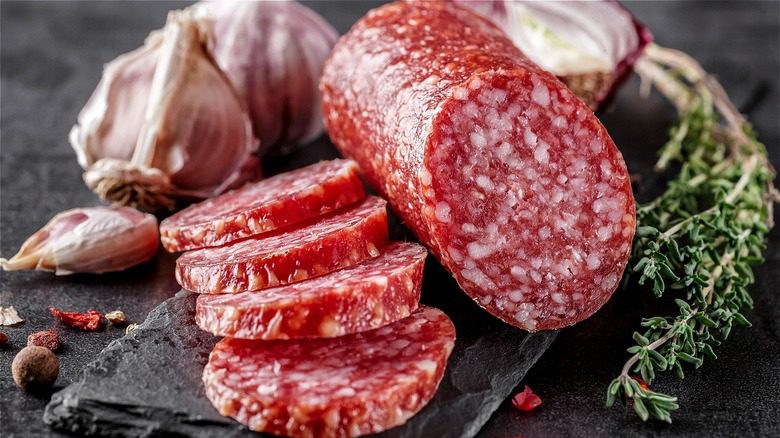
Is Salami Bad for Dogs?
Salami is not toxic to dogs, but it is not a safe treat, and not a good idea to feed it to them due to its high-fat content and other potential dog’s health risks. As mentioned earlier, the high-fat content in salami can cause pancreatitis when a dog eats salami, which can be a severe and potentially life-threatening condition.
In addition to the risk of pancreatitis, eating salami and other cured meats may also contain added preservatives and seasonings that are unsafe for dogs. These additives can cause stomach upset and other digestive issues in dogs.
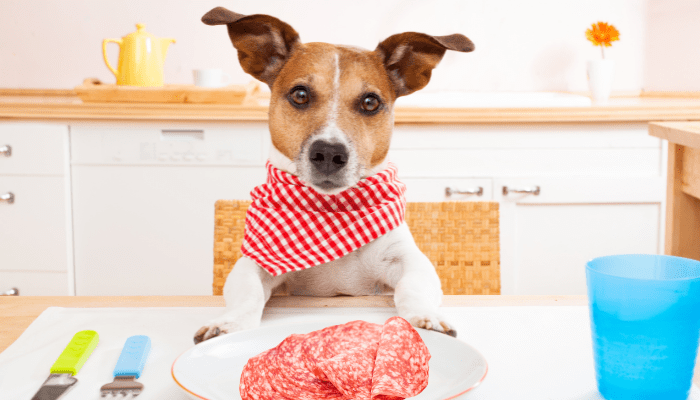
Risks of Dogs Eating Salami
Is salami bad for dogs? It is also important to remember that dogs have different nutritional needs than humans, and their diet should be tailored accordingly. Feeding them human foods, even those that are safe for humans to eat, can disrupt their regular diet and lead to nutrient imbalances. Therefore, it is always best to consult a veterinarian or a professional animal nutritionist to determine the best diet for your dog.
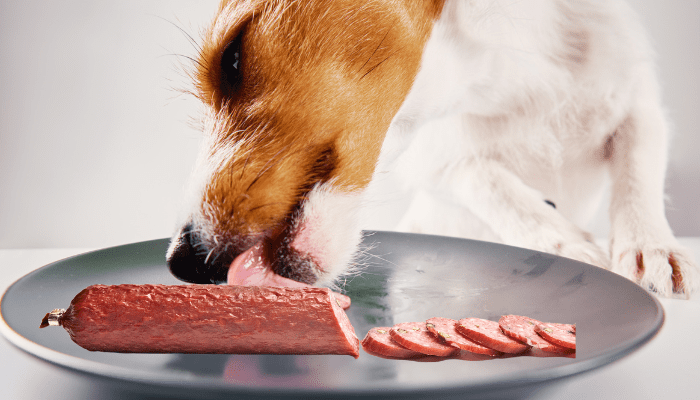
Can Dogs Eat Salami?
Yes—but only in minimal quantities. Salami is high in fat and has too much salt, which can cause digestive upset or even pancreatitis in some cases. Also, remember that too much sodium and fat can lead to weight gain and other health issues in your pup. However, if your Rottweiler enjoys the occasional single slice of deli meat (and let’s face it—who doesn’t?), then there’s no reason they shouldn’t want a rare piece of salami. Just be sure to keep portions small!
Can Dogs Eat Salami Slices?
Yes—as long as those couple of salami slices are skinny. Again, fatty foods like salami should not be a regular part of your dog’s diet; they should only be given occasionally (and in moderation). Make sure to remove any rind or skin from the salami slices before giving them to your pup; these parts are complex to digest and could cause an upset stomach. Also, try not to provide your Rottweiler any extra seasoning or condiments like mustard or relish with their slice of salami; these ingredients aren’t healthy for dogs either!
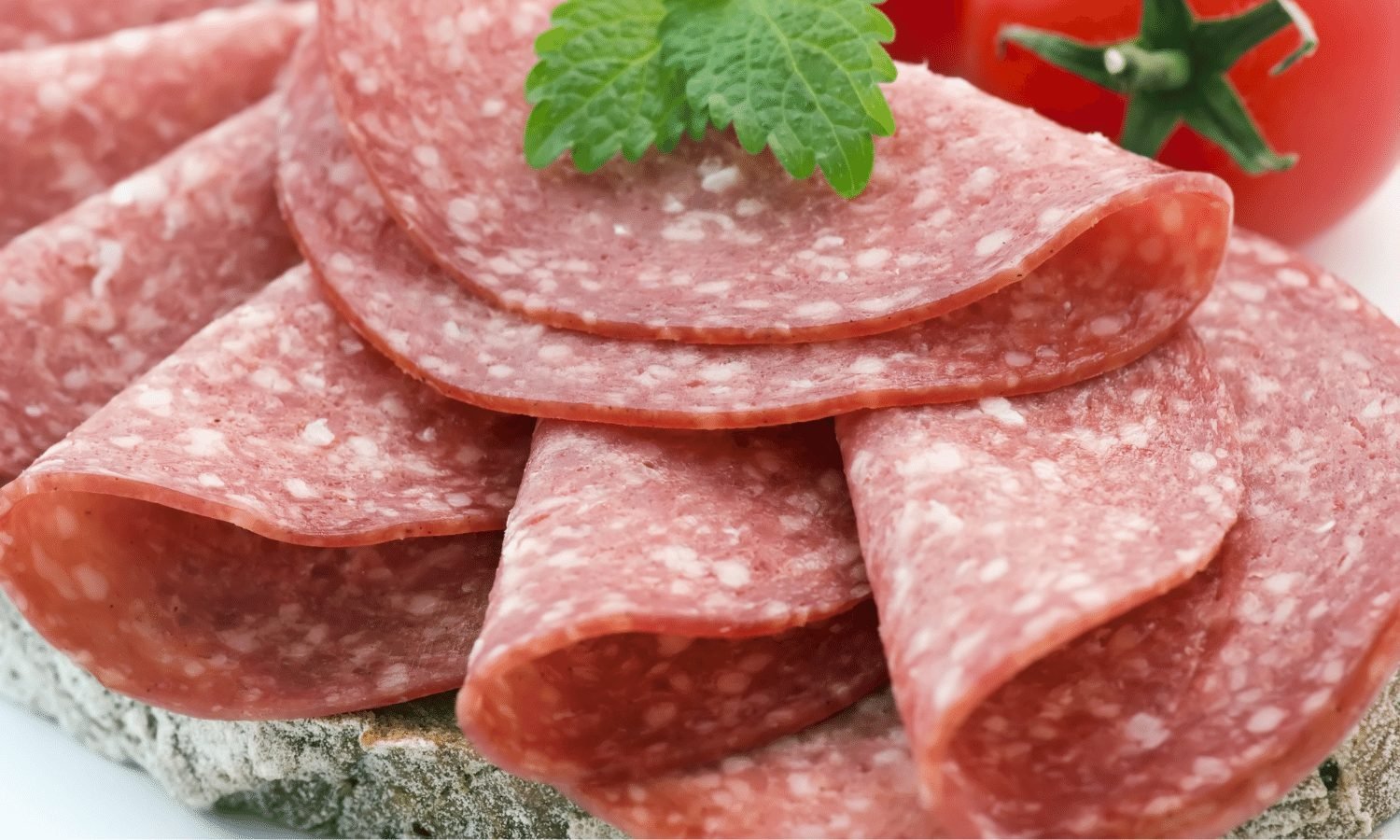
Can Dogs Eat Salami Sticks?
No—not unless they are pretty small. The same rules apply here as one slice of salami: keep the size down and avoid additional condiments or seasoning when feeding them to your pup. If you give them a stick of salami now and again, make sure it’s cut up into bite-sized pieces first!
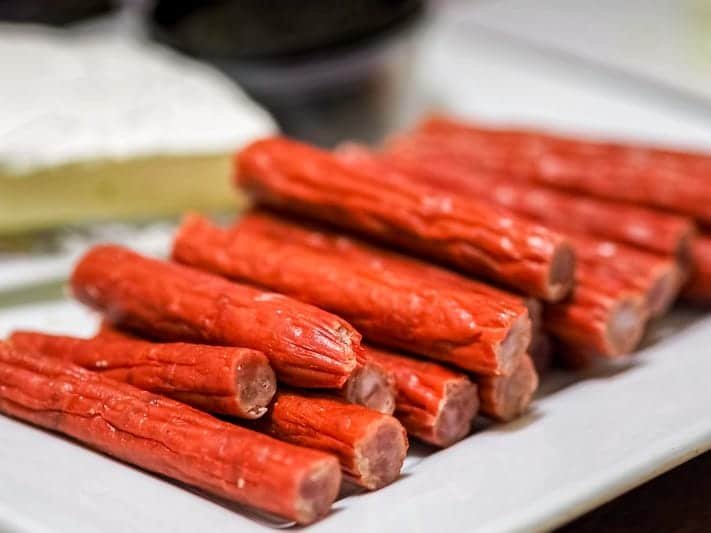
Can Dogs Eat Spicy Salami?
No—spicy food isn’t good for any pet’s digestive system. Additionally, many hot spices are toxic or irritating for dogs’ delicate throats and stomachs; they might even cause vomiting or diarrhea if consumed in large enough quantities. So it’s best to avoid giving them spicy sausages altogether!

Can Dogs Eat Genoa Salami?
Yes—as long as it is leaner than other types of salamis. Genoa salami is usually made from pork shoulder instead of pork belly (the fattier cut) and contains fewer calories than traditional varieties. So it’s generally considered safer for your pet than other processed meats. Just be sure it doesn’t have any added ingredients, such as garlic powder (which is toxic for dogs), before feeding it to Fido!
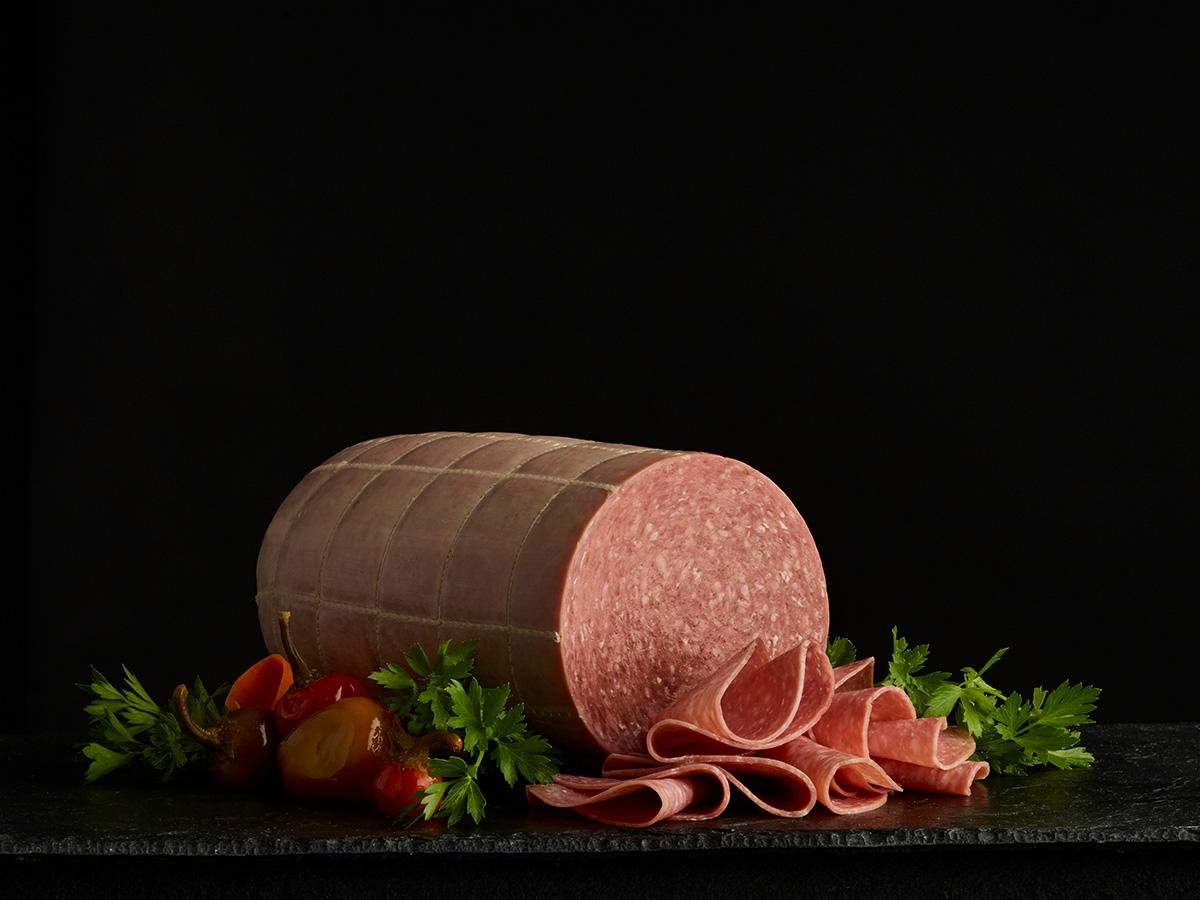
Can Dogs Eat Uncured Salami?
Yes—but always check the label first! Wide uncured varieties contain nitrates/nitrites as preservatives; Although at the same time, these aren’t necessarily dangerous on their own (in fact, nitrates occur naturally in many fruits and vegetables), excessive consumption can lead to dog’s health issues like cancer down the line. So always read the label carefully before giving any processed meat product to your pup!
What to Do if Your Dog Eats Too Much Salami?
If your dog has eaten a large quantity of salami or any other cured meat, it is important to take action quickly. The high-fat content in salami can cause pancreatitis in dogs, a severe and potentially life-threatening condition. Symptoms of pancreatitis in dogs include vomiting, diarrhea, loss of appetite, abdominal pain, and lethargy. If you suspect your dog has developed pancreatitis after eating salami or other high-fat food, it is important to contact your veterinarian immediately.
In the meantime, try to remove any remaining salami or other food from your dog’s reach and monitor your dog closely for any signs of illness. If your dog exhibits symptoms such as vomiting or diarrhea, it is important to keep them well hydrated. Offer small amounts of water or electrolyte solution frequently. However, please do not force your dog to drink, as this can cause them to inhale the liquid and potentially develop pneumonia.
It is also important to avoid giving your dog any medications or home remedies without consulting a veterinarian. Only a veterinarian can determine the appropriate course of treatment for your dog based on their specific needs and condition.
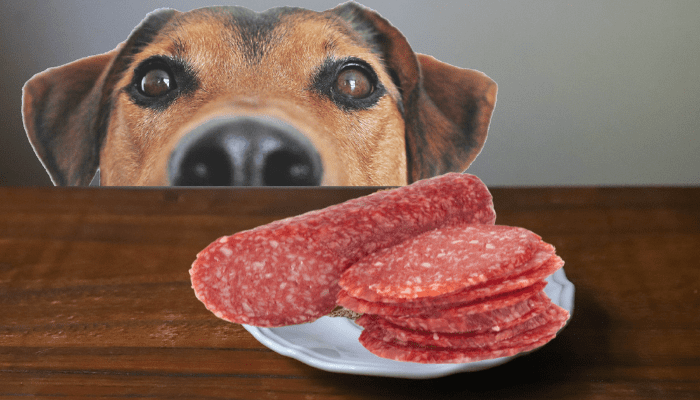
Final Thoughts
In conclusion, can dogs eat salami? Yes, but it should only be done in moderation. Ensure the salami is lean and free of added ingredients such as garlic powder or nitrates/nitrites before giving it to your pup. Additionally, keep the size down and avoid any additional condiments or seasoning when feeding them to your pup. Contact your veterinarian immediately if you are ever concerned that your dog may have overeating salami.
Frequently Asked Questions
WHAT THREE MEATS SHOULD DOGS AVOID?
Your pup’s health is paramount, so you should be cautious about meat. You’ll want to steer clear of processed sausages and ribs as they can break down easily in a dog’s stomach or cause an obstruction in its throat. A safe rule of thumb – keep the pigging out at the bay.
CAN DOGS EAT DELI PEPPERONI?
With the salty, aromatic flavor of pepperoni tempting even our four-legged friends, it’s important to remind pet owners that processed meats like this can harm pets. That includes all forms of pepperoni – from pizza slices to clumpy cold cuts; it must stay off their menu.
ARE CURED MEATS OK FOR DOGS?
Don’t let your pup give in to temptation! Excess salt can be detrimental for dogs, as too much sodium intake has been linked with bloating and even kidney damage. So while the cured meat may look appetizing, it’s best kept out of reach from our furry friends.
WHAT MEATS CAN DOGS SAFELY EAT?
To support your pup’s development, animal-based proteins like chicken, beef, and chuck roast are complete sources of essential nutrients. Always cook any beef thoroughly – it should never be served raw or undercooked!

